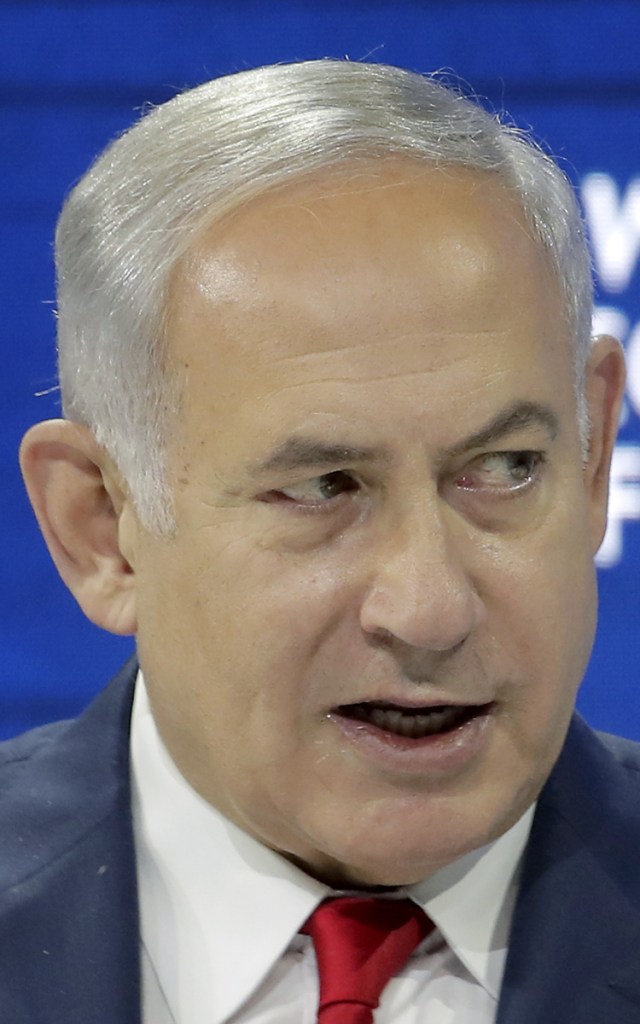JERUSALEM — Israeli Prime Minister Benjamin Netanyahu and Polish Prime Minister Matusz Moravitsky spoke by phone Sunday agreeing to open a dialogue to avoid further diplomatic fallout following Poland’s initial approval of a law making it a criminal offense to mention Polish complicity in crimes committed during the Holocaust.
The crisis between the two countries appeared to be deepening on Sunday as Poland’s deputy chief of mission, Piotr Kozlowski, was summoned to Israel’s Ministry of Foreign Affairs in Jerusalem to explain why his country would promote such legislation.
Polish lawmakers voted Friday for a bill that would fine or jail people who blame Poland or Poles for Nazi atrocities committed on its soil during World War II, including the deaths of hundreds of thousands of Jews at the Auschwitz-Birkenau death camp. The law still needs final approval from the Polish Senate and the country’s president.
It comes as the country has become more nationalistic. Tens of thousands of people chanted and marched through Warsaw last year in an annual gathering of Europe’s far-right movements, and the majority party has sought to protect Poland’s image.
Israel’s Ministry of Foreign Affairs told Kozłowski the vote’s timing was “particularly surprising and miserable,” pointing out that Friday was the eve of International Holocaust Remembrance Day. It was also the 73rd anniversary of the liberation of the Auschwitz-Birkenau extermination camp in southern Poland.
Conveying a message from the Israeli government, the ministry said the “legislation will not help further the exposure of historical truth and may harm the freedom of research, as well as prevent discussion of the historical message and the legacy of World War II.”
Following the meeting, Kozłowski told Israeli reporters that the goal of the law “is not to whitewash history, but to safeguard it and safeguard the truth about the Holocaust and prevent its distortion.” According to Reuters, Polish officials say the law would not limit Holocaust research or the freedom of expression.
Even though several death camps, including the notorious Auschwitz-Birkenau, were built on Polish soil, Poles say they should be referred to as Nazi extermination camps or camps in occupied Poland, disassociating Poland from the Nazi crimes committed there.
Israelis, including Prime Minister Benjamin Netanyahu, reacted furiously to the law, seeing it as an attempt by Poland to re-write history and even deny the Holocaust.
“One cannot change history and the Holocaust cannot be denied,” said Prime Minister Benjamin Netanyahu in a statement.
In a heated Twitter argument with the Polish embassy, Yair Lapid, a popular opposition leader in the Israeli parliament, tweeted that “there were Polish death camps and no law can ever change that.”
The bill, which would jail even foreigners for up to three years for using terms such as “Polish extermination camps,” passed the lower legislature overwhelmingly. For the country’s ruling Law and Justice Party, it’s part of a yearslong effort to prevent people from “slandering the good name of Poland,” as officials once put it.
Yad Vashem, Israel’s Holocaust Remembrance Center, which last week hosted Vice President Mike Pence, said the law was “liable to blur the historical truths regarding the assistance the Germans received from the Polish population during the Holocaust.”
The center said it agreed that the term “Polish death camps” was a historical misrepresentation – the extermination camps were set up in Nazi-occupied Poland in order to murder the Jewish people within the framework of the “Final Solution.”
“However, restrictions on statements by scholars and others regarding the Polish people’s direct or indirect complicity with the crimes committed on their land during the Holocaust are a serious distortion,” read the Yad Vashem statement.
Many historians warn against trying to simplify Poland’s role in the Holocaust.
The country was occupied for years by the forces of Nazi Germany, who herded Jews into ghettos, shot at least 200,000 of them and killed an additional million in Auschwitz, according to the United States Holocaust Memorial Museum.
Throughout the occupation, Poles fought back through underground movements and resistance armies. A quarter-million Polish civilians died during a 1944 uprising against the German army in Warsaw, according to the museum.
Send questions/comments to the editors.



Comments are no longer available on this story